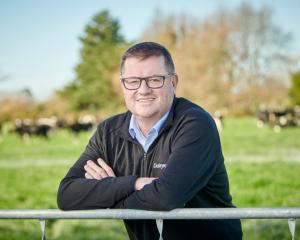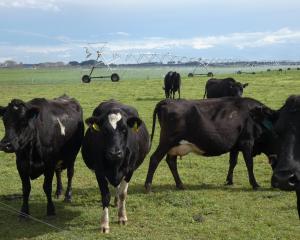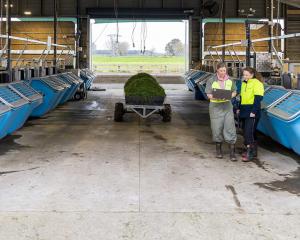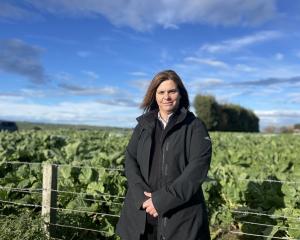
In 2016, Craig Piggott founded Halter, a product-based company which uses artificial intelligence to guide cows around a farm, set up virtual fences and detect health events — among a host of other functions — with the ultimate aim of creating a future for farming that is simpler and more ethical and sustainable.
Since its launch, Halter has grown to a team of 130 employees and won awards at the 2017 New Zealand Innovation Awards and 2021 NZ Hi-Tech Awards.
Mr Piggott was also a finalist for the 2018 NZ Hi-Tech Young Achiever Award and EY Entrepreneur of the Year award and won the 2020 NZ Hi-Tech Young Achiever Award.
Telling his story at this week’s South Island Dairy Event in Oamaru, Mr Piggott said he loved his rural upbringing — "I wouldn’t trade it for the world" — and was always passionate about "fixing things".
He grew up around the Waikato, where his parents were sharemilking, before they bought a farm at Morrinsville.
While his childhood dream was to become a mechanic, his parents suggested he go to university first, so he heeded their advice and studied mechanical engineering.
Returning to the farm at weekends, he noticed how hard his parents were working and also how there were a lot of inefficiencies on the farm.
At that time, his dream job was at Rocket Lab, which, at that stage, had not launched anything. He got turned down twice before being successful on his third attempt after approaching founder Peter Beck directly.
The year spent at Rocket Lab was "mind-blowing", not because it involved rockets — "very quickly the novelty of that ... wears off" — but because he could see what could be achieved by setting out on an ambitious mission with an incredible team, Mr Piggott said.
So with that in mind, he left Rocket Lab to start Halter. Mr Beck, who had been both a mentor and coach, joined the board of the start-up and continued to be a major influence on him, he said.
He started realising that most things on the farm came back to the cow — so that was where he started.
In stage 1 of Halter — dubbed "Is it possible to train a cow? — he spent "hours, weeks and months" in paddocks on his parents’ farm, watching cows and trying to understand if he could get them to follow cues.
After about a year in the field, he headed to the United States to pitch to investors, raising about $8.5million to build the rest of the product.
The second part involved building something farmers would love.
One thing he knew from his year at Rocket Lab was he was never going to work somewhere lacking world-class people. It was not only building a product but building a team to build a product, Mr Piggott said.
People were pulled from all over the world and probably about 80% of them knew nothing about farming.
Farmers who came on board in the early stages to provide insights and feedback were a critical part of product development.
Comments now ranged from people saying thanks to Halter they had the time to coach their child’s sports team, to saying they would retire from farming if they could not have Halter.
From the Waikato, Halter launched into Canterbury at the beginning of this year. Since then, it had expanded into other regions and should be across the country in the coming months, Mr Piggott said.
During the four-year "engineering grind", much time was put in to making it in a way that it could evolve and adapt.
The collar could be updated once it was on the cow, which meant the product kept getting smarter.
While there was still a long way to go, he believed the company was on the right track.
Having a platform able to adapt and respond to challenges excited the team.
Dairy farming was the focus at present and where the company had its "hands full", but a few chats had also been held with beef farmers.
When it came to the system of training an animal, results were usually seen with three days.
He believed New Zealand was the "best place in the world" to start a company such as Halter; that came down to "how epic" the country’s dairy industry was.
It was already world-leading in so many ways and there was proximity to high-quality dairy farmers and industry knowledge.
He viewed Halter as a solution to cows on pasture and had no plans to sell into parlour or stall-based systems, Mr Piggott said.
At some stage, Halter would go offshore to pasture-based markets such as Europe and South America.














